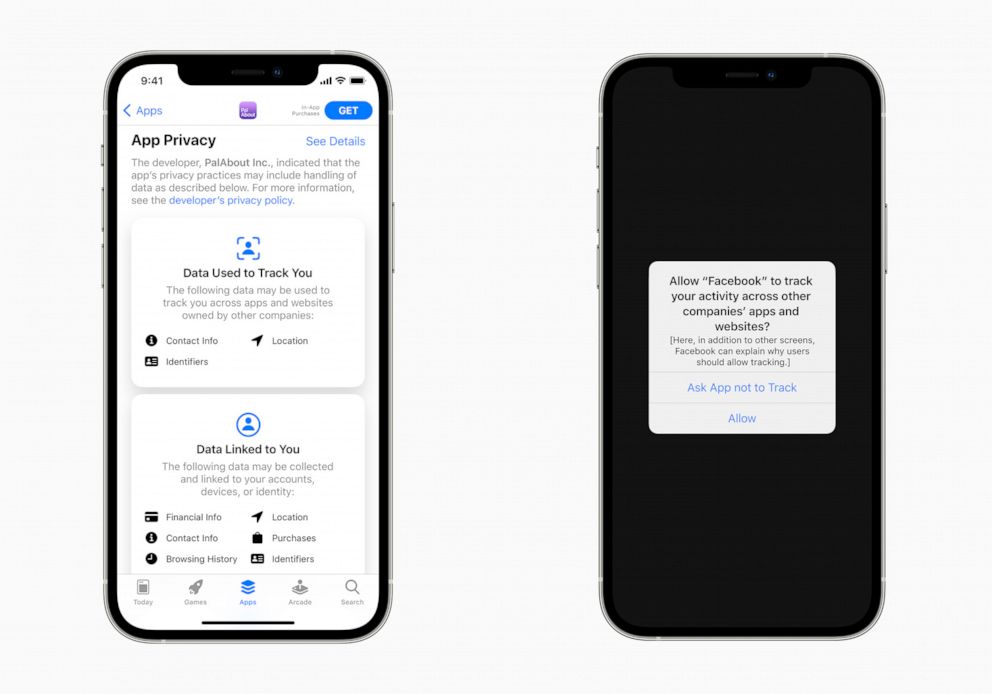Apple's latest privacy update faces heat from Facebook
The update will require apps to get permission before tracking their data.
Apple said that a major privacy update -- one that has already courted controversy ahead of its release -- will now be rolled out in the "early spring."
The update will "require apps to get the user's permission before tracking their data across apps or websites owned by other companies," according to a statement released on Apple's website on Wednesday.
"Under Settings, users will be able to see which apps have requested permission to track, and make changes as they see fit," the company added. "This requirement will roll out broadly in early spring with an upcoming release of iOS 14, iPadOS 14, and tvOS 14, and has already garnered support from privacy advocates around the world."

The company's announcement included comments from privacy advocates who lauded the upcoming update, which will essentially crack down on the ability of apps to track users' data.
"Too often, consumers are unknowing participants in a web of data tracking and targeting," Michelle Richardson of the nonprofit Center for Democracy and Technology said in a statement accompanying Apple's announcement. "These changes will help rebalance the ecosystem so that data collection and sharing is more transparent and tracking is no longer the default."
"Systemic change of this breadth is a huge leap forward for consumers," Richardson added.
Social media giant Facebook, however, has already slammed the upcoming update, arguing that it will likely hamper the reach of targeted ads.
"Apple has every incentive to use their dominant platform position to interfere with how our apps and other apps work, which they regularly do to preference their own," Facebook chief executive Mark Zuckerberg said during the company's 2020 Q4 earnings call on Wednesday, according to a company transcript. "This impacts the growth of millions of businesses around the world, including with the upcoming iOS14 changes, many small businesses will no longer be able to reach their customers with targeted ads."

"Apple may say that they're doing this to help people, but the moves clearly track their competitive interests," Zuckerberg added. "I think this dynamic is important for people to understand because we and others are going to be up against this for the foreseeable future."
Apple's CEO Tim Cook defended the company's actions on Thursday during remarks at the Computers, Privacy and Data Protection conference.
Cook said the App Tracking Transparency update, as it's being called, is "about returning control to users" and "giving them a say over how their data is handled."
"Users have asked for this feature for a long time," he added, according to prepared remarks. "We have worked closely with developers to give them the time and resources to implement it. And we're passionate about it because we think it has the great potential to make things better for everybody."
Cook added that many users may not know whether apps they use "may in fact be passing on information about the photos they've taken, the people in their contact list, or location data that reflects where they eat, sleep or pray."
"When ATT is in full effect, users will have a say over this kind of tracking," Cook said.
"Some may well think that sharing this degree of information is worth it for more targeted ads," the CEO added. "Many others, I suspect, will not, just as most appreciated it when we built a similar functionality into Safari limiting web trackers several years ago."




